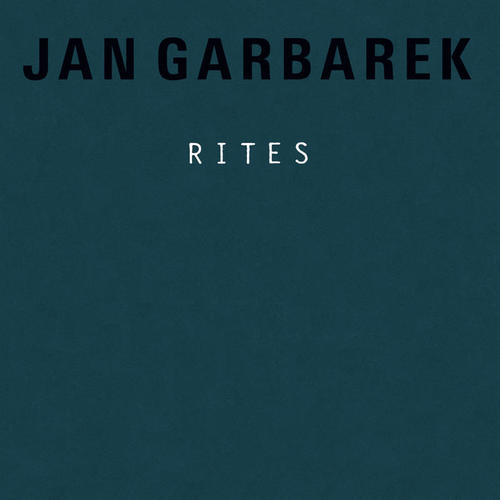
Rites
Since the late '70s, Jan Garbarek has been carving out a place within jazz for the folk and spiritual traditions of the indigenous peoples of Scandinavia, the Netherlands, and finally of those people all over the world. Rites, a double CD, is his attempt at forging a synthesis that takes improvisation into the heart of ritual music and creates a new form of spiritual from them both. Using a strategy for each of the discs, the first one digs deep into the spiritual and mystical side of his language. Garbarek plays soprano and tenor as well as synthesizers, drum machines, and samples -- always understated, always elegant -- and utilizes the talents of some of his running mates as well as new ones.
Rainer Bruninghaus
appears sporadically throughout, as does bassist
Eberhard Weber
, and drummer/percussion wizard
Marilyn Mazur
is ubiquitous. The music is slow, tenuous, and repetitive. It hardly matters -- on disc one, anyway -- which of the pieces are being played. All of them have spare, chant-like melodies that are lifted by myriad percussion instruments and keyboards, which provide a spacious ambience in which to enfold them both. Even Garbarek's trademark icy saxophone -- usually made more so by
Manfred Eicher
's production -- is warm, watery, and deeply entrenched in this warm mix that falls over listeners like a fine meditation blanket; like that blanket, it begins to stir emotions from deep within the heart of the listener. While these songs all segue into one another, it is worth noting that Garbarek recut "It's OK to Listen to the Grey Voice" for this collection, where it's performed with deeper conviction and fits better than it did on the album it was named for. Disc two of Rites is a bit of a different story. While the music is indeed intended for ritual, it comes from the celebratory side of the aisle rather than the contemplative one. Here are dances, Garbarek's versions of gospel shouts, processionals, festival waltzes, and all manner of joyful ceremonies completing the circle. On one collection, listeners get music for prayer, contemplation, and grief, as well as a funky European read of indigenous music for moving to and celebrating. Clearly this is what sets Rites above Garbarek's other recordings, him taking that balance he possessed so early in his career back again and putting it to work in a near-sacred setting.
